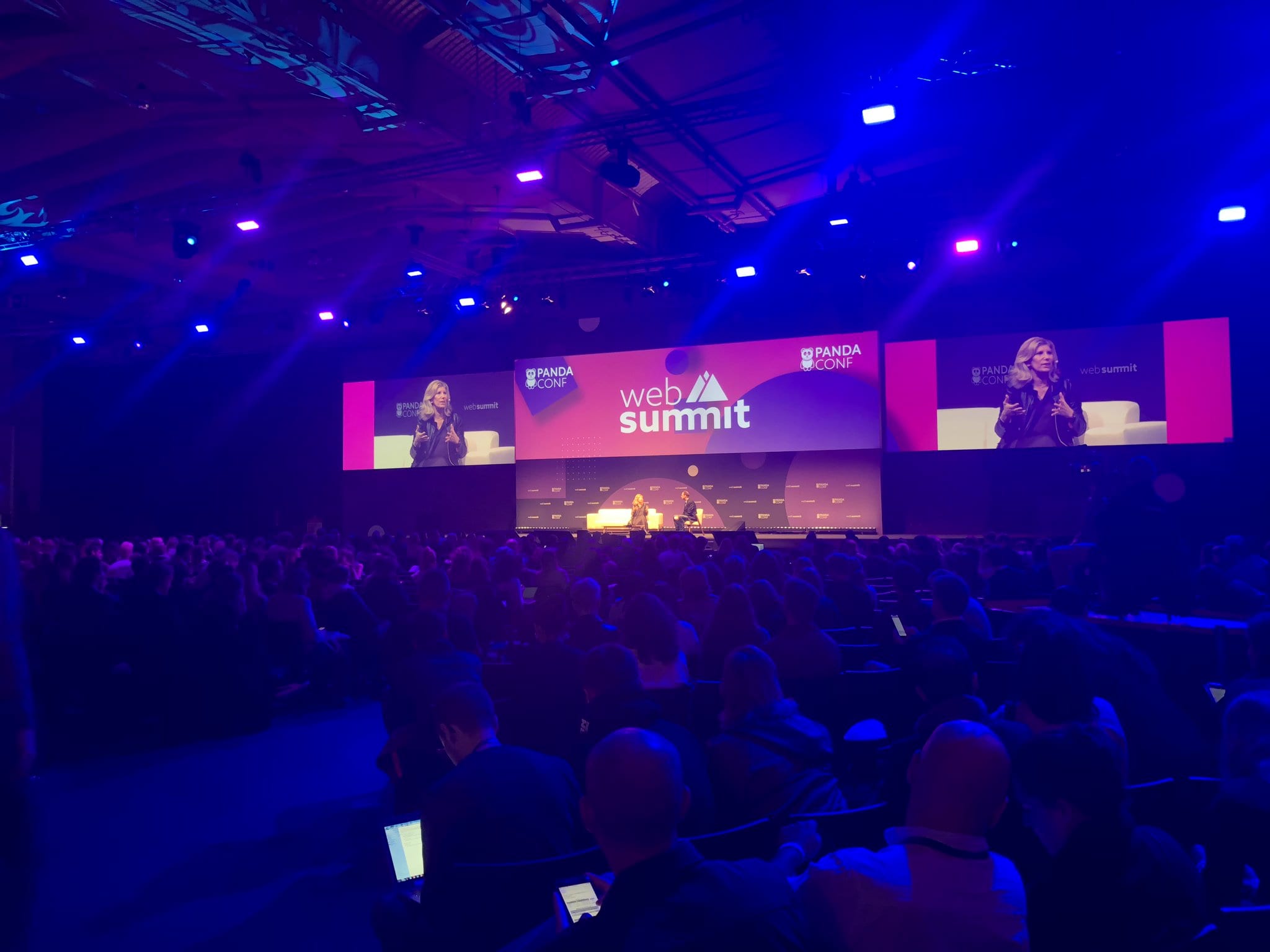Nearly 70,000 people poured into Lisbon this year to attend #WebSummit2018, setting a new record. An action packed three days, with countless talks, debates and keynote speeches across a dozen stages meant that there was an incredible amount to listen and learn from, including insights from our own CEO, Barri Rafferty (pictured below). Here are my five most interesting learnings from the conference.

1. 38 percent of people would rather give up sex for a year than give up their mobile phone.
We live in a mobile-first world and brands who embrace a mobile-first view of their marketing efforts have the opportunity to be richly rewarded. However, this does not mean a full pivot away from other forms of marketing (such as TV advertising), but instead, ensuring that the potential of mobile marketing (whether through social media, programmatic mobile advertising or creating mobile experiences and websites) is harvested and top of mind.
2. 500 million people a day watch at least one video on Facebook.
Creating video for social media can be a powerful way to reach and engage a target audience; that is, if you know how to navigate the world of social video. Simply using traditional video formats (a 2 to 3 minute piece of content with audio, in a 16:9 aspect ratio) will deliver underwhelming results. Instead, video content must be created with a social first mind-set, with a focus on fast ideas, not just fast edits.
3. 2018 has been a watershed year for purpose-led marketing.
More and more brands are seeking to define their purpose, and to activate marketing campaigns based on taking a stand. The undeniable “big bang” moment of this in 2018 has been Nike’s collaboration with Colin Kaepernick in the US; but this is really underscoring the rise of a huge trend in brand-led communications that will continue for the foreseeable future. However, how brands balance this against the backdrop of a “post-truth” world means the journey will not be a straightforward one for many.
4. The most powerful influencers don’t need brand collaborations to monetise.
Patreon is a service that enables fans of influencers to pay an ongoing contribution, based on a subscription model, direct to their chosen content creator. On average, over 70 percent of supporters are still paying their monthly subscription (which on average, totals $7 a month) after one year, indicating that the model is “sticky” enough to continue to proliferate. Influencers with solid Patreon audiences are assured of a fixed income, meaning that they no longer need to seek brand partnerships to be financially viable. How this develops on both the influencer and the brand side, will be an interesting thing to watch out for in 2019 and beyond.
5. Technology moves fast. Government and policy moves slow. This has to change.
For years, one of tech’s mantras has been “move fast and break things.” According to Brad Smith, President of Microsoft, that era must now end. Instead, tech companies need to think about the impact of their technology on society and be considerate with their actions, especially when dealing with hot issues like machine learning, facial recognition software and encryption. Meanwhile, government and regulators like the EU must move quicker, and start to better understand the modern world, and come together quickly to build a framework that enables and protects the safety of their citizens, and the shared values of democracy and freedom. This, perhaps more than anything spoken about at WebSummit in 2018, is the issue of tomorrow that we need to start answering today.


